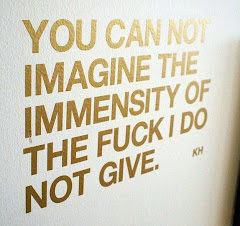It's time to straighten up
time to fly right
time to stop falling with grace
time to start missing the ground
time to fly when having fun
time to take my head from out the clouds
time to put your feets on the ground
time to stop
It's time to look
time, now, to leap
It's time, Miller time
time to hold 'em
time to know when to fold 'em
time to come to your senses
time to come back from those fences
time to save in a bottle
time for parsley, sage, rosemary
thyme, too, at the fair
time to buy!
time: two o'clock
It's time to eat lunch
-Marcus
time to fly right
time to stop falling with grace
time to start missing the ground
time to fly when having fun
time to take my head from out the clouds
time to put your feets on the ground
time to stop
It's time to look
time, now, to leap
It's time, Miller time
time to hold 'em
time to know when to fold 'em
time to come to your senses
time to come back from those fences
time to save in a bottle
time for parsley, sage, rosemary
thyme, too, at the fair
time to buy!
time: two o'clock
It's time to eat lunch
-Marcus



Ok
The most notable opinions made by most fellow commenters was this: in the world of reality, no two systems can be truly identical. More over, some brought on a little chaos theory stating, "that two systems with initial starting conditions will begin to deviate in small ways that will eventually lead to them operating differently." I think the leaning towards logical proofs is a curious reflection of this forum. Most illustrated the pointlessness of such a hypothetical. Because the two robots are the same, it doesn't matter which is the win because which ever automaton is victorious the same as the robot that entered the battle. Still other preferred a direct view: the one the strikes first, or the one on the left, or the one that strikes last.
I approached this problem from the learned consul of my classes. Assume the Robots are, indeed functionally identical from stats to subatomics and given identical environmental conditions (assuming their not fighting in a void) at the start of the battle. The motion and activity of the brawl would still affect the environment. The dirt and dust and discarded robot parts would begin to cluster the field and introduce inequality to the setting by randomized placement of the litter. Is this train of thought is unhelpful in reaching a conclusion? What of methods introduced to maintain the environment's near-perfect homogeneity? Well, nothing occurs in stasis. Only the perspectives of the Robots can alter significantly from beginning to end. Eventually, an event outside the arena but within the Robots' range of detection would introduce a non-shared experience (presumably, the robots are not synchronizing data). It would be first noticed by one robot sooner then the other.We'll call this one Observer Robot. Even if the other robot, Oblivious Robot, sees the event too, the delay in observation time results in the two no longer being identical. Observer Robot, in a battle for individuality, would begin to calculations to determine an advantage from this event. It may even favor a strategy favoring knowledge supremacy for this event. Now Observer Robot is redirecting part of it's processing power towards these new calculations, effectively reducing processing capabilities for it's combat routines. Now Oblivious Robot has the advantage of singular goal at the cost of situational awareness. The robots are no longer equal. The outcome is dependent on the nature of the event. Should the event prove advantageous to Observer Robot, will deliver a death stroke to it's counterpart and leave the battle field secure in it's identity. However, driven by a singular goal and higher task specific processing aim towards the fruition of that goal, Oblivious Robot will defeat Observer Robot. In victory it will wonder why it's Once-was-twin changed battle tactics. It will search to attribute its own personal characteristics to the other's behavior. It will find none. Oblivious Robot will begin to see it as distinct from itself and become tormented by the final moments of Observer Robot, the fight and question it's own identity. It will seek enlightenment and answers. In doing so, Oblivious Robot will construct two Identical Robots and force them to fight.
What do you think? Comment below.
Thanks for reading.
-Mr. Wordy